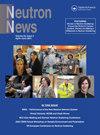利用椰子纤维作为附加材料和矿渣替代水泥对混凝土抗压强度和劈裂抗拉强度的试验研究
Q4 Physics and Astronomy
引用次数: 0
摘要
发展对建筑材料工业部门产生了影响。由于水泥生产效率的提高,为了减少二氧化碳的排放,该行业可以使用矿渣粉(GGBFS)作为水泥的替代品。本研究旨在确定使用GGBFS替代水泥和椰子纤维作为添加剂对混凝土在3,7和28天的和易性、密度、吸水率、抗压强度和劈裂抗拉强度的影响。本研究采用实验方法共选取84个尺寸为10cm × 20cm的圆柱形试样。本研究采用水泥(0%、35.5%、43.5%)和椰子纤维(0.23%、0.63%)替代GGBFS的方法进行。研究结果表明:28日龄时,椰子纤维的最佳抗压强度试验值为GGBFS(35.5%),椰子纤维的平均抗压强度为32.32 Mpa(0.63%)。其中,SU1变化(24.63 Mpa)、SU2变化(30.20 Mpa)、SU3变化(30.77 Mpa)、SU5变化(28.16 Mpa)、SU6变化(28.31 Mpa)。28日龄时的最佳劈裂强度,即以GGBFS为35.5%,椰子纤维为0.63%的SU4变异,平均劈裂强度为2.23 Mpa。本文章由计算机程序翻译,如有差异,请以英文原文为准。
Experimental Study of Utilization Coconut Fiber as Additional Material and Slag as a Cement Substitution Against Compressive Strength and Split Tensile Strength of Concrete
Development developments have an impact on the building materials industry sector. To reduce CO2 emissions due to soaring productivity of cement, the industry can use Ground Granulated Blast Furnace Slag (GGBFS) as a substitute for cement. This study aims to determine the effect of using GGBFS as a substitute for cement and coconut fiber as an additive on the workability, density, water absorption, compressive strength and split tensile strength of concrete at 3, 7, and 28 days. In this study using the experimental method with a total of 84 samples of cylindrical specimens with a size of 10cm x 20cm. This research was conducted with variations of GGBFS substitution of cement (0%, 35.5%, 43.5%) and coconut fiber as an additive (0.23%, 0.63%).The results of this study indicate that the optimum compressive strength test value at the age of 28 days is at GGBFS (35.5%) and coconut fiber (0.63%) reaches an average compressive strength of 32.32 Mpa. The SU1 variation (24.63 Mpa), SU2 variation (30.20 Mpa), SU3 variation (30.77 Mpa), SU5 variation (28.16 Mpa), SU6 variation (28.31 Mpa). Optimal splitting strength at the age of 28 days, namely the SU4 variation with GGBFS 35.5% and coconut fibers (0.63%) reached an average split tensile strength of 2.23 Mpa.
求助全文
通过发布文献求助,成功后即可免费获取论文全文。
去求助
来源期刊

Neutron News
Physics and Astronomy-Nuclear and High Energy Physics
CiteScore
0.30
自引率
0.00%
发文量
36
 求助内容:
求助内容: 应助结果提醒方式:
应助结果提醒方式:


